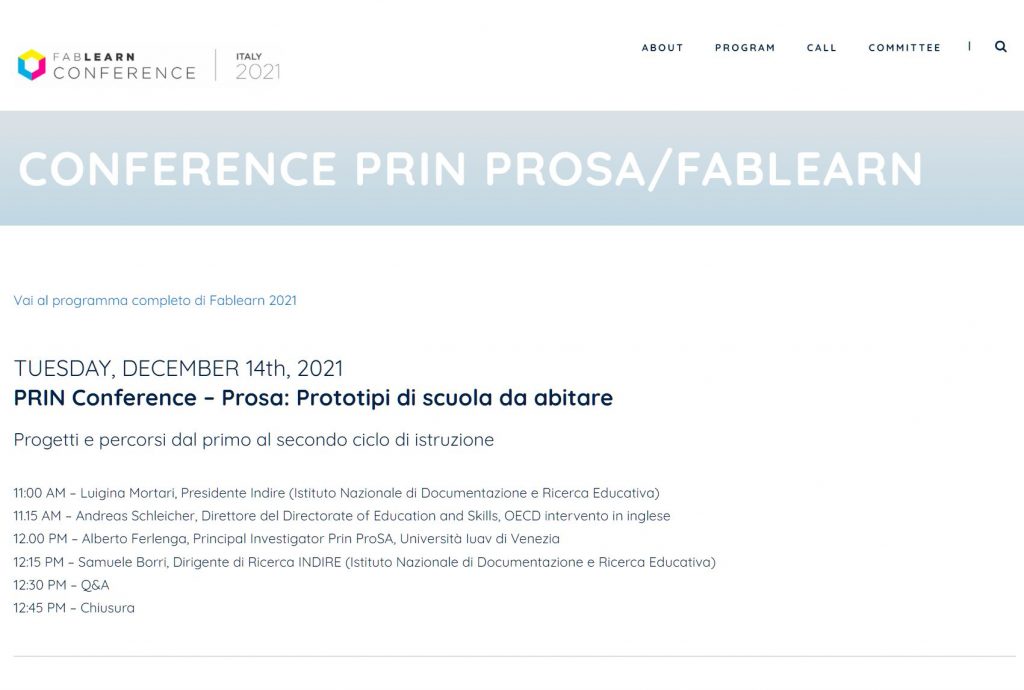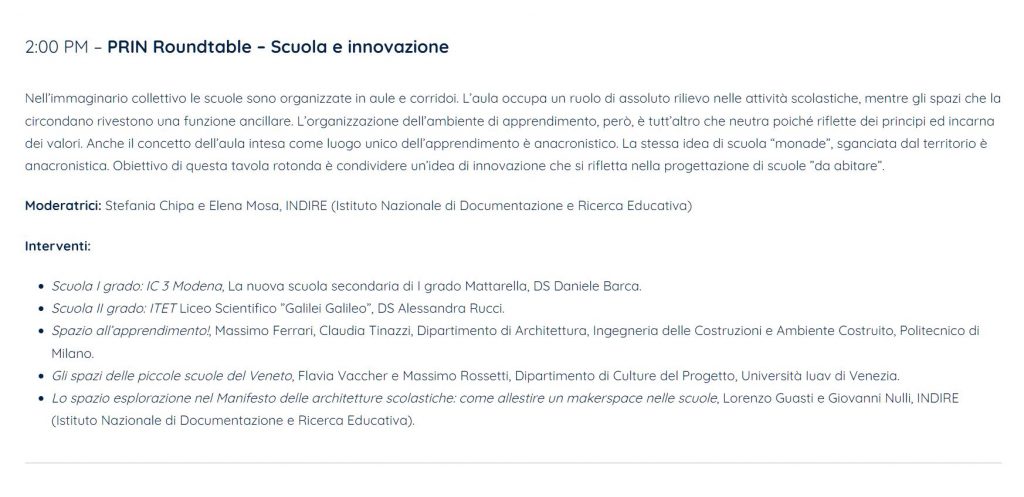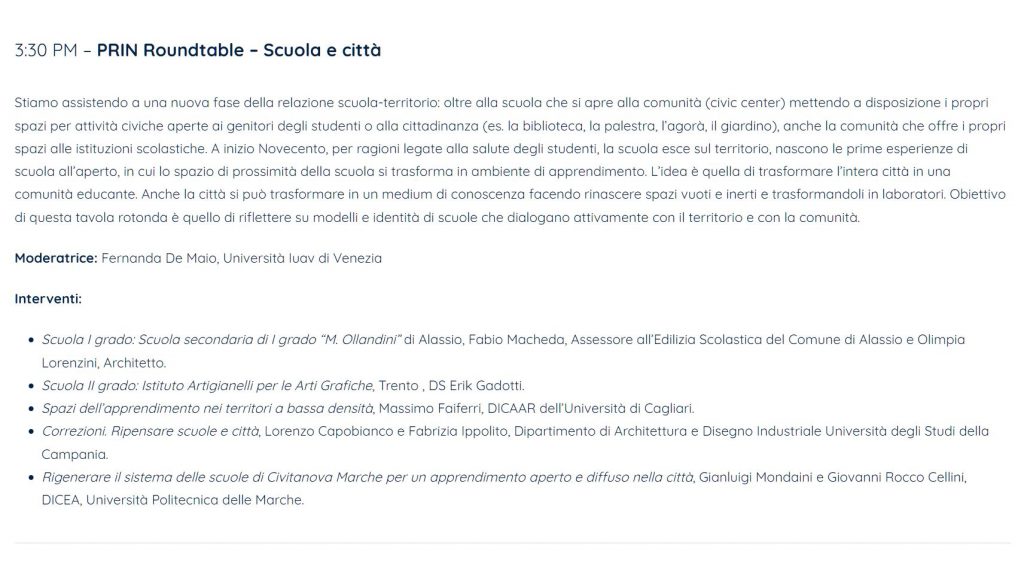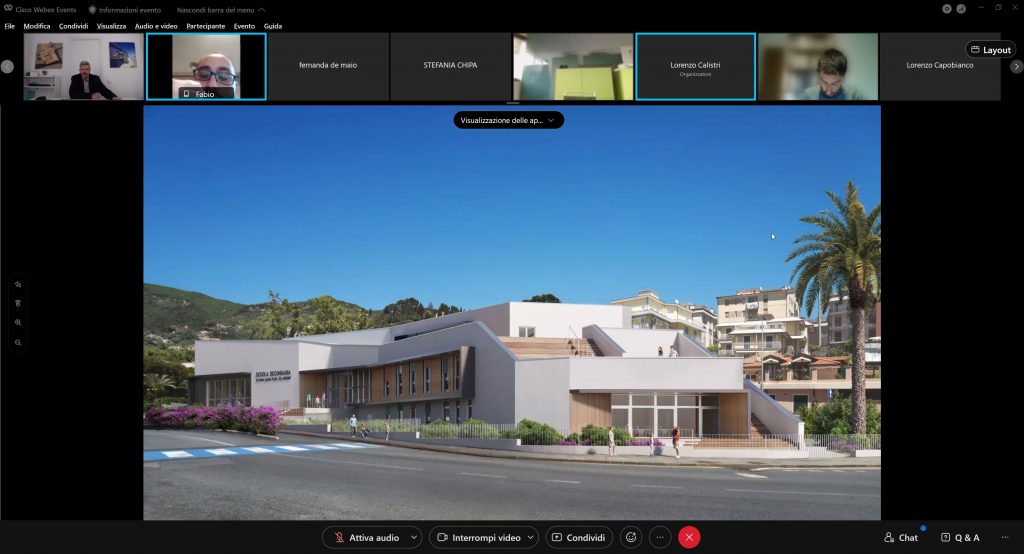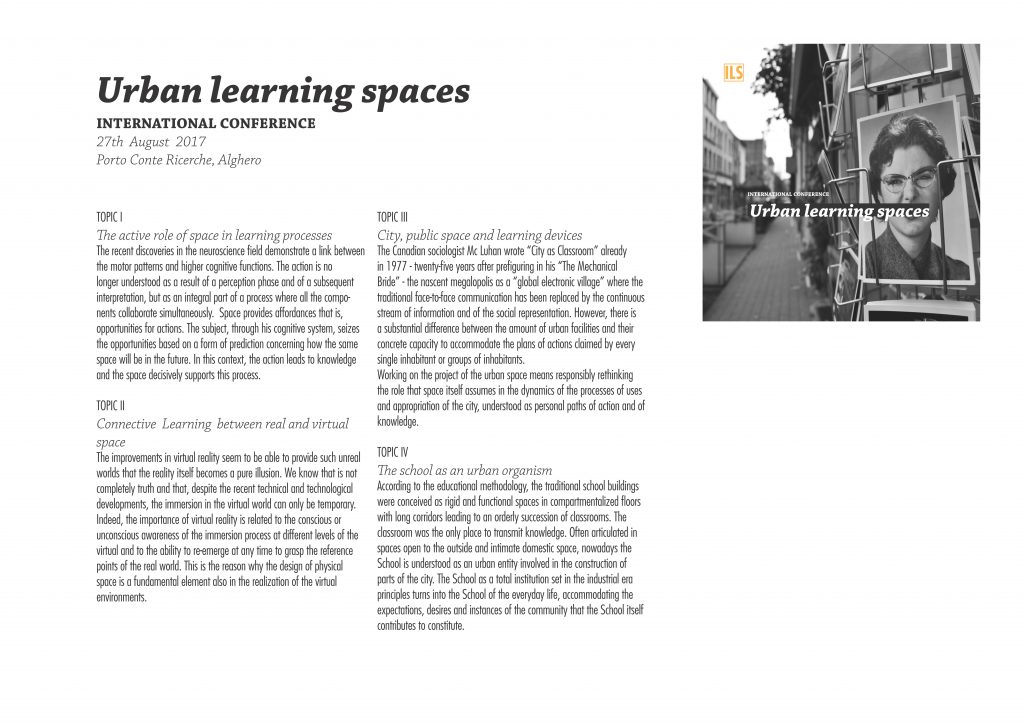2021 Conference theme:
“Innovation in Laboratory teaching with Making, Educational Robotics, Coding and Innovative technologies”
December 13-16, 2021, Florence
FabLearn Italy 2021 is an international conference that connects researchers, teachers, educators and professionals working with the aim of innovating education by applying the principles of Making, Coding and Educational Robotics in formal, non-formal and informal context.
The FabLearn Italy 2021 is associated to the global FabLearn initiative, that advocates and supports constructionist learning experiences for all students. FabLearn is based on the work of Columbia University Associate Professor Paulo Blikstein and the Transformative Learning Technologies Lab (TLTL).
The FabLearn Italy 2021 reaches its fourth edition, and it has been organized since 2018 by INDIRE.
This year the conference title is “Innovation in Laboratory teaching with Making, Educational Robotics, Coding and Innovative Technologies” . Some of the main topics are Educational Robotics , Coding, Makerspace and Fablab at school, new learning model, blockchain, AI.
Papers, lectures, panel discussions, scientific presentations, posters, and special events will present the latest findings on digital fabrication, robotics, “makers” culture.
To limit the spread of the SARS-CoV-2, the 2021 edition will be only online with a view to meeting soon in person. As usual, the participation will be completely free. Conference sessions will be planned during the afternoon, in order to make easier for school teachers to attend.
This year two related events will be held in the Fablearn Italy frame: the PRIN and the presentation of the book “Inventando si impara” by Lorenzo Guasti, interesting and unique Italian translation of the famous “Invent to learn: Making, Tinkering and Engineering in the Classroom” by S.L.Martinez and G.S.Stager.
3:30 PM – PRIN Roundtable – Scuola e città
Stiamo assistendo a una nuova fase della relazione scuola-territorio: oltre alla scuola che si apre alla comunità (civic center) mettendo a disposizione i propri spazi per attività civiche aperte ai genitori degli studenti o alla cittadinanza (es. la biblioteca, la palestra, l’agorà, il giardino), anche la comunità che offre i propri spazi alle istituzioni scolastiche. A inizio Novecento, per ragioni legate alla salute degli studenti, la scuola esce sul territorio, nascono le prime esperienze di scuola all’aperto, in cui lo spazio di prossimità della scuola si trasforma in ambiente di apprendimento. L’idea è quella di trasformare l’intera città in una comunità educante. Anche la città si può trasformare in un medium di conoscenza facendo rinascere spazi vuoti e inerti e trasformandoli in laboratori. Obiettivo di questa tavola rotonda è quello di riflettere su modelli e identità di scuole che dialogano attivamente con il territorio e con la comunità.
Moderatrice: Fernanda De Maio, Università Iuav di Venezia
Interventi:
Scuola I grado: Scuola secondaria di I grado “M. Ollandini” di Alassio, Fabio Macheda, Assessore all’Edilizia Scolastica del Comune di Alassio e Olimpia Lorenzini, Architetto.
Scuola II grado: Istituto Artigianelli per le Arti Grafiche, Trento , DS Erik Gadotti.
Spazi dell’apprendimento nei territori a bassa densità, Massimo Faiferri, DICAAR dell’Università di Cagliari.
Correzioni. Ripensare scuole e città, Lorenzo Capobianco e Fabrizia Ippolito, Dipartimento di Architettura e Disegno Industriale Università degli Studi della Campania.
Rigenerare il sistema delle scuole di Civitanova Marche per un apprendimento aperto e diffuso nella città, Gianluigi Mondaini e Giovanni Rocco Cellini, DICEA, Università Politecnica delle Marche.
